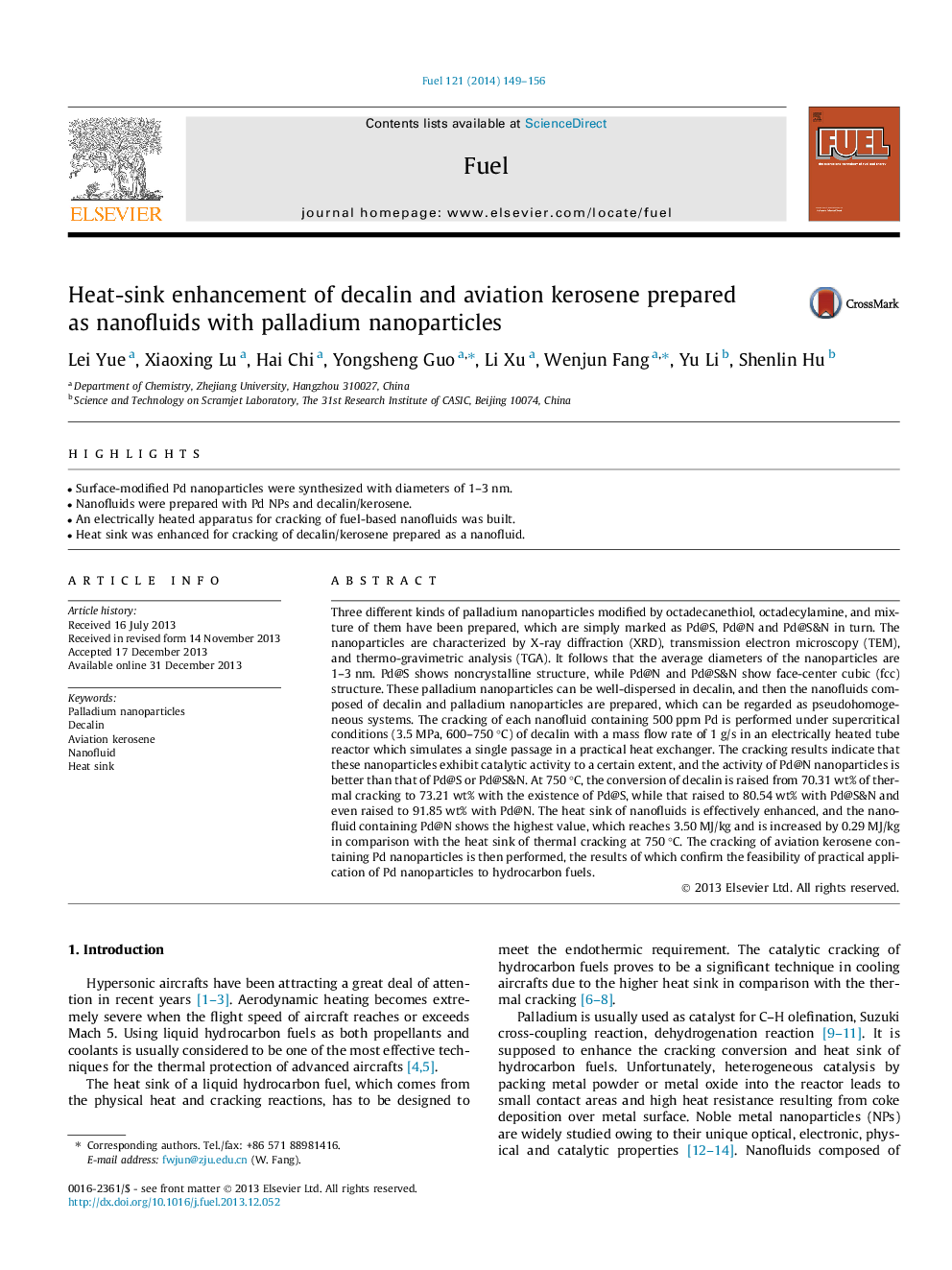| کد مقاله | کد نشریه | سال انتشار | مقاله انگلیسی | نسخه تمام متن |
|---|---|---|---|---|
| 206246 | 461151 | 2014 | 8 صفحه PDF | دانلود رایگان |
• Surface-modified Pd nanoparticles were synthesized with diameters of 1–3 nm.
• Nanofluids were prepared with Pd NPs and decalin/kerosene.
• An electrically heated apparatus for cracking of fuel-based nanofluids was built.
• Heat sink was enhanced for cracking of decalin/kerosene prepared as a nanofluid.
Three different kinds of palladium nanoparticles modified by octadecanethiol, octadecylamine, and mixture of them have been prepared, which are simply marked as Pd@S, Pd@N and Pd@S&N in turn. The nanoparticles are characterized by X-ray diffraction (XRD), transmission electron microscopy (TEM), and thermo-gravimetric analysis (TGA). It follows that the average diameters of the nanoparticles are 1–3 nm. Pd@S shows noncrystalline structure, while Pd@N and Pd@S&N show face-center cubic (fcc) structure. These palladium nanoparticles can be well-dispersed in decalin, and then the nanofluids composed of decalin and palladium nanoparticles are prepared, which can be regarded as pseudohomogeneous systems. The cracking of each nanofluid containing 500 ppm Pd is performed under supercritical conditions (3.5 MPa, 600–750 °C) of decalin with a mass flow rate of 1 g/s in an electrically heated tube reactor which simulates a single passage in a practical heat exchanger. The cracking results indicate that these nanoparticles exhibit catalytic activity to a certain extent, and the activity of Pd@N nanoparticles is better than that of Pd@S or Pd@S&N. At 750 °C, the conversion of decalin is raised from 70.31 wt% of thermal cracking to 73.21 wt% with the existence of Pd@S, while that raised to 80.54 wt% with Pd@S&N and even raised to 91.85 wt% with Pd@N. The heat sink of nanofluids is effectively enhanced, and the nanofluid containing Pd@N shows the highest value, which reaches 3.50 MJ/kg and is increased by 0.29 MJ/kg in comparison with the heat sink of thermal cracking at 750 °C. The cracking of aviation kerosene containing Pd nanoparticles is then performed, the results of which confirm the feasibility of practical application of Pd nanoparticles to hydrocarbon fuels.
Journal: Fuel - Volume 121, 1 April 2014, Pages 149–156
